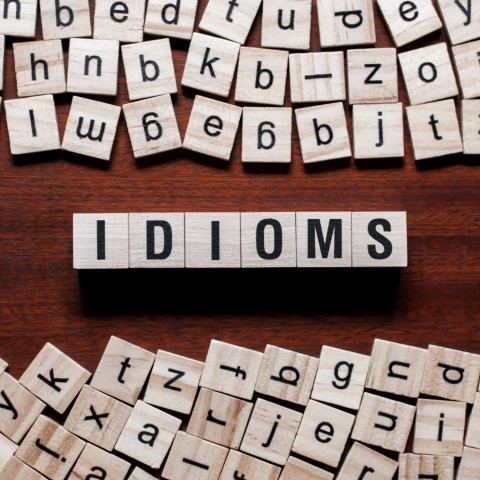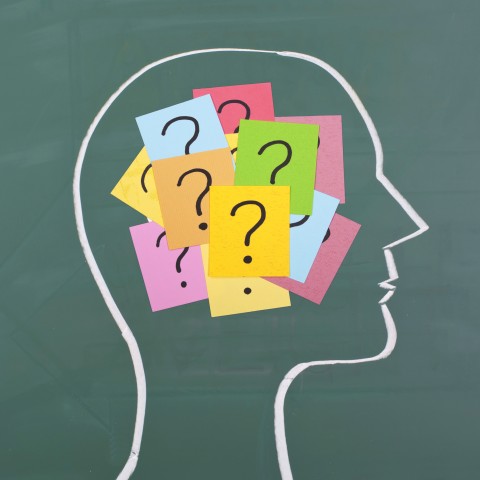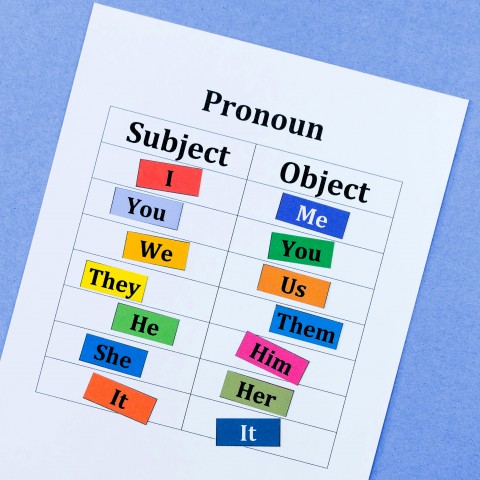
We brought you 30+ Hungarian classroom words and phrases as these are very important for Hungarian language learning. These are especially useful if you are taking a Hungarian class in Hungary, as they will help you understand basic conversation in a classroom setting as well as be understood by others around you. However, you will also find some sentences that can be used in everyday life, not just in class. Even more so, chances are you will hear many of them every day when visiting the country.
In this article, we will cover classroom greetings first, then learn to understand instructions from a teacher, especially if they are a Hungarian native speaker, and ask for clarifications from them as well as your study peers. Afterward, we will move to explanations of absence or being late, talking about your favorite subject, and checking for school supplies. All of these are useful Hungarian classroom phrases, so read them carefully.
Check out our basic Hungarian classroom phrases vocabulary list.
Once you have read this article a few times and memorized the key expressions we will list below, you will be able to understand basic dialogues and instructions in a Hungarian school setting. Is that not exciting?
Whenever you are ready, we can start. Let’s learn some basic classroom phrases in Hungarian.
Top 5 Hungarian classroom phrases.

 Table of Contents
Table of Contents
- Use Classroom Greetings
- Understand Instructions from Teachers
- Ask for Clarifications from Teachers and Classmates
- Explain Absence and Tardiness
- Talk about Favorite Subjects
- Check for School Supplies
- How HungarianPod101.com Helps You Reach Your Goals in Learning Hungarian Language
1. Use Classroom Greetings
One of the most common phrases that students use in the classroom is greetings. In fact, Hungarian classroom greetings are the first phrases you would hear or say when entering the classroom. So, we wanted to teach you a few of these first. To help you better understand each of these common classroom phrases in Hungarian, we made them into small conversations that are likely to happen in real life.
Here is how to introduce yourself to a new class.
“Good morning, teacher (woman).” – Jó reggelt, tanárnő!
“Hello, Patrick. How are you?” – Szervusz, Patrik! Hogy vagy?
“Good morning, teacher (man).” – Jó reggelt, tanár úr!
“Hi, Sylvie! How was your weekend?” – Szia, Szilvi! Hogy telt a hétvégéd?
You have to address teachers formally. Here are some other Hungarian formal greetings.
“Hi (more people).” – Sziasztok!
“Hi! Do you want to sit next to me?” – Szia! Akarsz ma mellém ülni?
“See you tomorrow, [classmate name].” – Holnap találkozunk, [osztálytárs neve].
“Yes. But don’t forget your book tomorrow.” – Igen. De holnap ne felejtsd el a könyvedet!
“Good-bye, teacher (woman).” – Viszont látásra, tanárnő!
“Bye (more people). I wish everyone a nice afternoon.” – Sziasztok! Mindenkinek kellemes délutánt kívánok!
“Good-bye, teacher (man).” – Viszont látásra, tanár úr!
“Bye (more people). You all did well today.” – Sziasztok! Ma mindannyiótok nagyon jól teljesített!
2. Understand Instructions from Teachers
When you are taking a class, it is crucial that you know Hungarian classroom command phrases because it is important to be able to follow the teacher’s instructions whenever a new task comes up. However, it can very easily be a case that basic classroom phrases in Hungarian are needed, which are not necessarily related to a task but are just general instructions to you as a student. Here we collected the most frequently occurring phrases that teachers use in the classroom.
“Please, open your books on page [ordinal number].” – Kérlek, nyissátok ki a könyveiteket a [sorszám] oldalon.
“What page number? I didn’t hear properly.” – Hányadik oldalon? Nem hallottam rendesen.
“Listen carefully.” – Hallgassatok figyelemmel!
“I can’t. People are loud in the hallway.” – Nem tudok. Hangosak az emberek a folyosón.
“Be quiet.” – Légy csendben!
“But I have a cold. I sneeze occasionally.” – De meg vagyok fázva. Néha tüsszentek.
“Is there any question?” – Van kérdés?
“No, everything was clear to me.” – Nem, minden érthető volt számomra.
“Read this sentence out loud.” – Olvasd fel hangosan ezt a mondatot!
“Do I have to? I’m insecure.” – Muszáj? Szégyenlős vagyok.
“Speak up.” – Beszélj hangosabban!
“I can’t really. I have a sore throat.” – Nem igazán tudok. Fáj a torkom.
“Sit down (whole classroom).” – Üljetek le!“
But we just stood up.” – De csak most álltunk fel.

3. Ask for Clarifications from Teachers and Classmates
Our classroom Hungarian vocabulary list cannot miss clarification phrases. The ones listed below will be your best friend, especially when starting out, i.e. when you’re new in the class. This is because new students usually need a bit more time to be accustomed to the new setting and teacher, and to be able to pick up the pace. Therefore, Hungarian school phrases asking for clarification could not be missed from this HungarianPod101 article. Let’s see them!
How to ask questions in class?
“I don’t understand.” – Nem értem.
“Where did you fall behind?” – Hol maradtál le?
“Could you repeat it, please?” – Meg tudná ismételni, kérem?
“Of course, but pay more attention next time.” – Természetesen, de legközelebb figyelj jobban!
“I have a question.” – Van egy kérdésem.
“Can it wait a bit?” – Tudsz várni egy kicsit?
“What did the teacher say?” – Mit mondott a tanár?
“I didn’t hear it either.” – Én sem hallottam.
“What is the homework?” – Mi a házi feladat?
“We have to write an essay about our morning routine.” – Esszét kell írnunk a reggeli rutinunkról.
“Did I understand it well that…?” – Jól értettem, hogy…?
“I think yes. I understood the same.” – Szerintem igen. Én is így értelmeztem.
4. Explain Absence and Tardiness
It can happen to all of us that we are late for something or someone has to wait for us. However, in a classroom setting, with the obligations of a student, it is trickier to overlook absence and tardiness. But with the right Hungarian classroom words and phrases, you can politely explain the reason behind them and save yourself some trouble. Here is how to do it:
“I’m not feeling well. Unfortunately, I won’t be able to attend school today.” – Nem érzem jól magam. Ma nem fogok tudni iskolába menni.
“Alright but ask for the homework for someone.” – Rendben, de kérd el a házi feladatot valakitől!
“I have a doctor’s appointment next week, so I’ll be late from class next week.” – Orvoshoz van időpontom, ezért késni fogok óráról a jövő héten.
“Sure, no problem but bring a doctor’s note for next class.” – Rendben, nem gond, de hozz magaddal orvosi igazolást a következő órára!
Here is how to make an appointment with a Hungarian dentist.
“Sorry I’m late. I had to put gas in my bike.” – Elnézést a késésért. Meg kellett tankolnom a biciklimet.
“Very funny. You’ll have to work extra hard today.” – Nagyon vicces. Ma extra keményen kell majd dolgoznod.
Running late again in Hungary? Check this out.
“I don’t have my homework with me. My dog ate it.” – Nincs nálam a házi feladatom. A kutyám megette.
“Oh, really? What a pity. Then, you will get double homework today to make sure lest it happens again.” – Ó, tényleg? De kár! Akkor ma dupla házi feladatot kapsz, nehogy megint megtörténjen.
Click for some believable excuses for being late.
“I didn’t study for the test because I had to work late yesterday.” – Nem tanultam a dolgozatra, mert késő estig kellett dolgoznom tegnap.
“Alright, understandable. You can retake it tomorrow.” – Rendben, érthető. Holnap újraírhatod.
Click for test preparation tips.

5. Talk about Favorite Subjects
We all have our favorite subjects that we like better than others. And we often love to talk about them because they are our passion or simply because we are good at them. In this section, with the right phrases that students use in the classroom to talk about their favorite subjects, you can also do the same. All you have to do is read them a couple of times, take notes, and practice pronouncing them. So, are you ready to learn classroom phrases in the Hungarian language with which you can describe and talk about your favorite subject in school? Let’s go then!
“My favorite subject is history.” – A kedvenc tárgyam a történelem.
“No way! Seriously? Mine too.” – Ne! Komolyan? Az enyém is!
“What is your favorite subject?” – Neked mi a kedvenc tantárgyad?
“I don’t know. I haven’t really thought about it.” – Nem tudom. Nem igazán gondoltam bele.
“Do you like math too?” – Te is szereted a matekot?
“Oh, no! I hate it. I’m too bad at it.” – Ó, nem! Én utálom. Túl rossz vagyok benne.
“I hate chemistry, it’s boring.” – Utálom a kémiát, unalmas.
“Are you kidding me? It’s the most interesting thing I have ever learnt about.” – Viccelsz velem? A legérdekesebb dolog, amiről valaha tanultam.
“I’m not good at literature.” – Nem vagyok jó irodalomból.“
Really? Do you want me to help you?” – Tényleg? Szeretnéd, hogy segítsek?

6. Check for School Supplies
School supplies are essential in every classroom, but usually, students have to provide them for themselves. So, if you forget something, you can ask a classmate or the teacher to borrow something. But it’s only possible to do if you know the right Hungarian classroom words and phrases. In this section, we will introduce those supplies that are most likely to be needed.
Our word of the day: “calculator” – számológép
See some must-have school supplies in a language-learning classroom.
“Can I borrow your pen?” – Kölcsön kérhetem a tolladat?
“Sure. I have to others.” – Persze. Nekem van még két másik.
“I lost my calculator.” – Elhagytam a számológépemet.
“How will you write the text?” – Hogy fogod megírni a dolgozatot?
“Do you have a sharpener?” – Van hegyeződ?
“No. I lost it a few days ago.” – Nem, elvesztettem egy pár napja.
“Did you bring your textbook?” – Elhoztad a tankönyvedet?
“Of course, as always.” – Természetesen, mint mindig.
“I have a new eraser.” – Új radírom van.
“Wow, great. Me too. It smells like strawberry.” – Wow, nagyszerű! Nekem is. Eper illata van.

7. How HungarianPod101.com Helps You Reach Your Goals in Learning Hungarian Language
We hope you enjoyed these common Hungarian classroom phrases and that you will be able to use them with ease with a native Hungarian speaker when the time comes. Do not forget, however, that practice makes perfect, so even though you took the first step towards learning the Hungarian language, reading this blog article just once will not do the trick. Give it another 2-3 reads, make notes and create your own Hungarian vocabulary list with unfamiliar words or phrases and recall them every now and then.
Let’s recap what we have learned now and what Hungarian school phrases you can widen your vocabulary with:
– Hungarian classroom greetings
– Instructions from teachers
– Asking for clarifications
– Explaining absence or being late
– Talking about your favorite subject
– Checking for school supplies
If you feel like there is any gap left in your knowledge, either let us know or ask away in the comments or check out our blog for other extensive Hungarian vocabulary articles.
To maximize your Hungarian language learning, we offer you not only blog articles but also free Hungarian vocabulary lists, and if you are a Premium Member, many more! Our features exclusive to members include Hungarian lessons with audio and visual learning materials too.
Be a Premium HungarianPod101 member today!
One final question for those who have finished the article: How would you say “I’m sorry I’m late, I lost my eraser”? Post your answer in the comments section!
























 Table of Contents
Table of Contents
























![A Group of Animals [Two Dogs, Parrot, Cat, Snake, Mouse] in Front of a White Background](https://wordlist.languagepod101.com/wordlist/media/27147&v=medium.jpg)





















